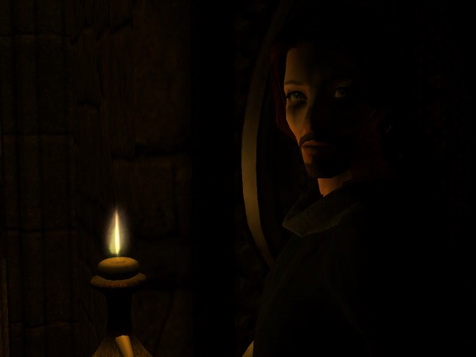
The same key served for all locks here below, though they were several.
To enter, there was the door tucked away at the back of the chapel, often further barred by a candle-stand or an extra chair dragged before it.
At the bottom of the stairs – as though the first lock might have been opened by chance – there was a second that had to be opened to enter into the royal tomb.
Only afterwards and in the shadowy alcove around the corner did one reach the third: the door to the crypt of the monks.
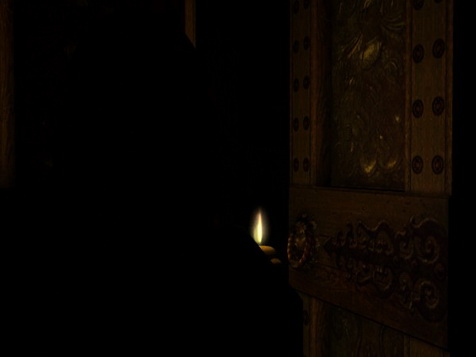
The Abbot never took out his key without thinking vaguely that something ought to be done. The same lock three times was scarcely better than one, and if any tomb deserved to be thrice barred it was that of the King.
Lately, however, he never opened the tomb of the monks without the urgent thought that this third door needed a better lock. Only he would have the key.

No bodies lay within it, of course. His abbey was still so new that his monks were all at least healthy enough to have traveled far to find it. And this was no Culdee house; he was not hard with them.
The crypt was not empty, however.

There were three lamps, and he lit them one by one from the same flame, with the solemnity of the acolyte he had once been lighting tapers from the Paschal candle.
Afterwards he set his own lamp – the intruder here below, like him – on the floor, perilously close to the edge of the pit in which he would one day be buried, perilously close to his swinging, inflammable hems.
Then he kneeled and crossed himself.
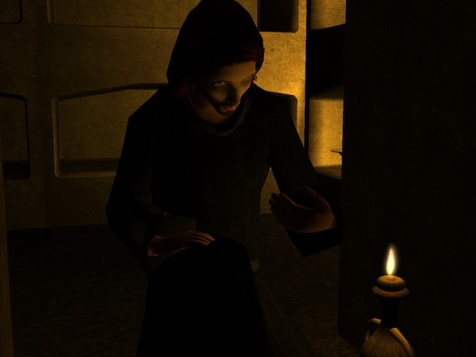
Anyone watching might have thought he was genuflecting before an altar. If he had come here below, however, it was because he wanted no one watching.
He leaned forward. Anyone watching might have thought he was about to pitch himself head-first into the hole.
He almost did.
He snatched up the lamp and leaned over the hole again to stare.
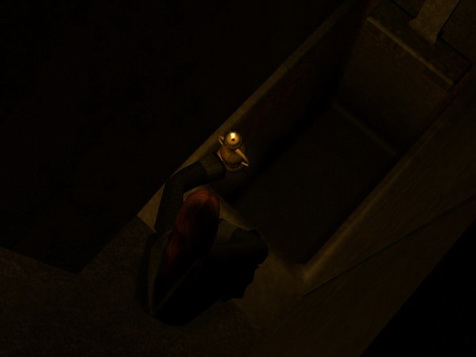
There was nothing.
There was not the least sign that anything had ever been. The book was gone. The rope he would have used to haul it up was gone. There was not even a mound of tatters and threads that rats would have left if they had eaten the parchment and leather. There was not even a pile of ash.
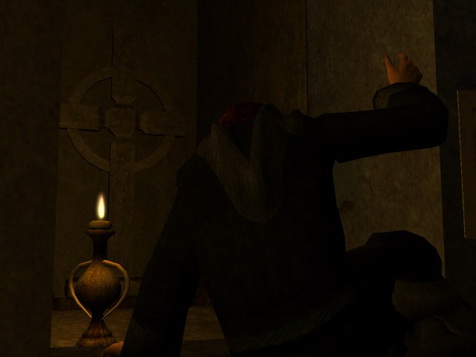
The oil sloshed perilously in the lamp as he slammed it down beside the hole. He fell back onto his behind and tangled his legs in his robes before he managed to crawl and scramble and stagger to his feet, as though some howling monster were about to leap out of the pit.
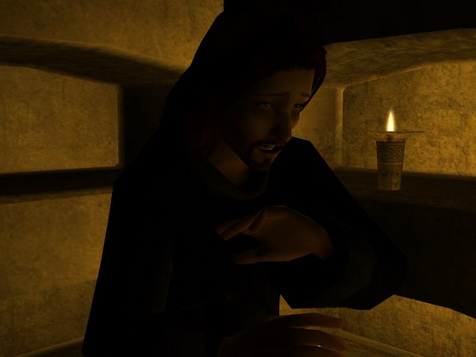
But there was nothing. The book was gone.
He tried to pull himself together: he tried – as when he mislaid a key or a letter – to retrace the hours and days.
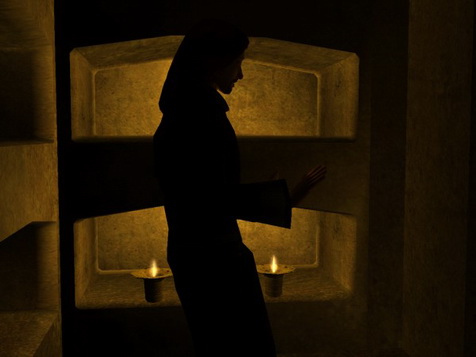
Where had he seen it last? Here: he had lowered it into the pit and locked it behind three doors.
When? A week ago, or eight days: after he had learned the truth about Brude and had felt more alone than he had in years.
What had he done since? He had–
He remembered, and then the silent, stony place echoed the moan he made.
All the locks here below opened to the same key, but they were two.
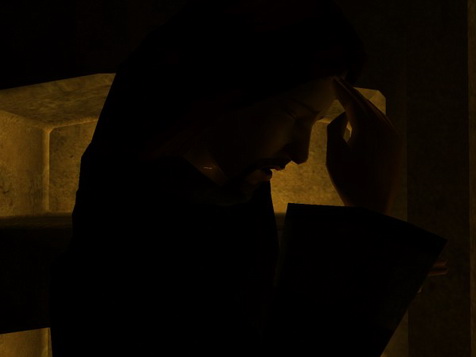
Aelfden had opened the first two doors himself on Saturday last, when the Princesses and young Colban had come to the royal tomb to pay their respects to their dead mother. But he had not stayed with them here below. He did not know what they had done or seen, or what they might have noticed standing in a shadowy alcove around a corner.
He did not know who held the other key in the Crown Prince’s absence – the King, he supposed – but he did know twelve-year-old boys. Colban was at just the age to be fascinated by death and locked doors and forbidden places. He was old enough to pilfer keys and to sneak away from the castle and ride as far as the abbey at night, alone or with a friend. He was old enough to read a little Greek. He was not old enough to know danger or feel fear.
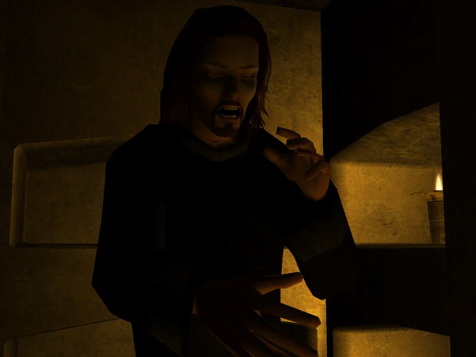
Aelfden’s hands raged against their emptiness: slapping at his face, tugging at his hair, and twisting and twining around his body like the heads of serpents until his coarse sleeves had scratched the scabs from his forearms, and he bled.
Before he fell he managed to clap his flailing hands together and hoarsely pray.
“Oh, God! Slay me! Slay me! I am a door wide open to evil and sin! But let no child come to harm through me!”









Oh shit! What if Cubby shows the book to Drage and then Drage shows it to Mydrinn..